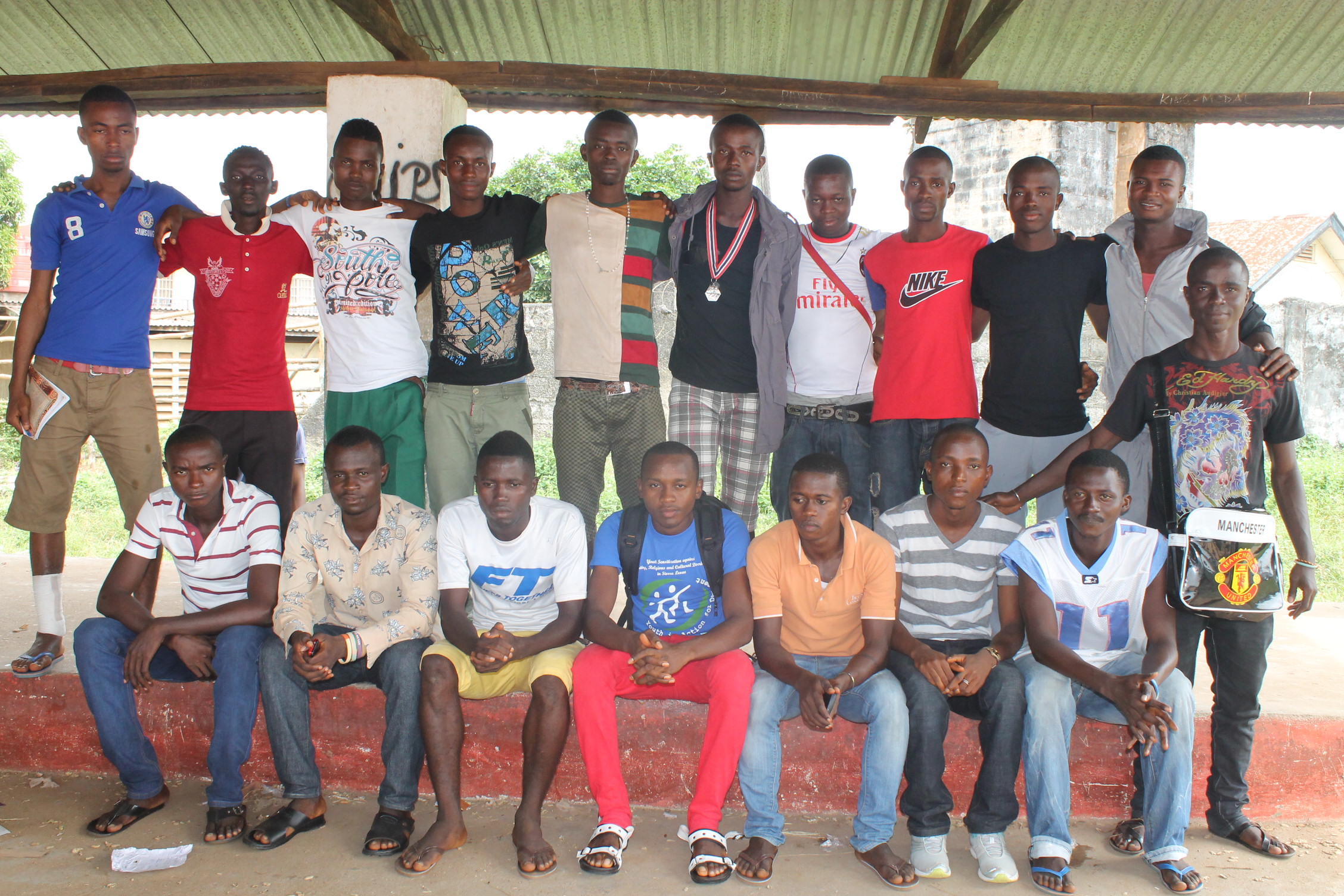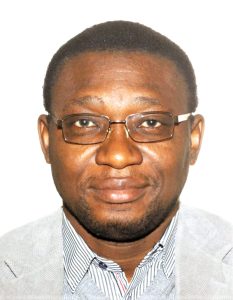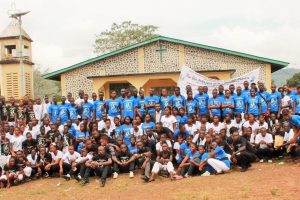
They Say “Youth are the Future Leaders”, When, Where and What is the Future?

Postcolonial Sierra Leone has experienced endless unenviable history ranging from dictatorship rule, brutal civil war, military putsches to a staggering democratic system that is riddled by graft, tribal, regional and selfish interests. Unfortunately, youth, women and children who are hardly considered in decision-making process, have always been the expendable victims. While women and children are weak to resist and survive, youth are manipulated by selfish compatriots to accomplish their sordid deeds. Consequently, the name “youth” has become over the years an antecedent to violence and immoral acts of every magnitude. People now go to ghettoes, gambling grounds and cult shrines when searching for the youth. This triggers the question: who is actually a youth in postcolonial and post conflict Sierra Leone?
Well, according to UNESCO, “youthhood is a period of transition from the dependence of childhood to adulthood’s independence and awareness of interdependence as member of a community”. So it is a more fluid category than a fixed age-group. According to Commonwealth to which Sierra Leone is a member, “a youth is anyone between 18 and 35 years of age”. This age limitation can be less or higher in some other countries.
When I related the above definitions to the World Health Organisation (WHO)’s 2013/2014 global life expectancy index which rated Sierra Leone at 46, a significant increment though as compared to previous years, yet one of the lowest in the world when compared to countries like Switzerland and Germany who were rated between 80 and 83 respectively in the same year, I could imagine that about half of the country’s 7 million population is youth and that almost all the decision-makers are living corpses. Ironically, section 41 of the 1991 constitution stated that “no person shall be qualified for election as president of the republic unless he/she has attained the age of 40 years”, which clearly tells that though the country belongs to the youth but they are not allowed to contest for its leadership. A would-be dead generation is literally empowered by default to decide the fate of living people… what a great irony!
“Youth are the future leaders”, is the proclamation of most Sierra Leonean speakers and writers. But you and I know that our grandparents promised our parents the same, and our political leaders are promising today the same. May I ask for heaven’s sake: when, where and what is this so-called future? Is there any such thing as future at all in this part of the world?
It must be noted that about 75% of Sierra Leonean youth are currently unemployed or underemployed due to lack of proper education, skill knowhow or job opportunities, according to UNDP. So even if the soothsaying about future leadership is true, how could such a group steer the future to prosperity when they have little or no administrative knowhow and leadership experience?
Grammatically, the future means a period of time following the moment of speaking or writing – a time still to come. It could be tomorrow, later or indefinite. This makes it logical to believe that the so-called future should be now. Yes, the future is now because today is the future for yesterday and yesterday was the future for the preceding days. Today is bad for the youth because the days before yesterday and yesterday were never prepared properly.
Moreover, from development point of view and for the sake of underprivileged youths who are languishing in the notorious slums across this country, everyone may agree with me that good future means improvement in the standard of living. That include but not limited to habitable homes, better community infrastructures, nutritious meal, affordable education, job opportunities, equal access to justice, improved health services, equitable distribution of the country’s meagre resources, a sincere democratic system of governance, just to name but few. Hence the above still remain an ordinary dream after five decades of self-governance, I consider any reference to the future to be a mere provocation for the youth. Those who are soothing the youth with the promise of future leadership are only killing their spirits. Because it would be foolhardy of any youth to expect a better future by miracles without seeing any foundation today. This is why whenever writers and speakers say “youth are the future leaders”, I always ask “why not now?” Why not simply include the youth in decision-making process? Why not simply stop using the youth as ordinary baits to attract donor funds?
Sadly enough, youth are only considered in Sierra Leone during campaign times when they are freely supplied with alcohol and harmful drugs by power thirsty compatriots who usually win elections at the expense of peace. Thy call harmful drugs and alcohol moral buster for the youth.
While peacebuilding nongovernmental organizations preach against the act of exploiting the economic weakness of the youth by power thirsty politicians during electioneering process, the politicians will dismiss them as baseless NGOs. But the negative effects have now started reflecting in spontaneous parts of the country barely one and half a year ahead of next elections, which is seemed to be a rapid reversal in all efforts applied over the years. The situation has become a real tug of war: while NGOs relentlessly sensitize the youth against violence using their meagre funds, power thirsty politicians continue to do the opposite: drug and drag the youth into politics using abundant corrupt money.
When president Koroma’s purported third term ambition became public shortly before the past Ebola outbreak, youth were mobilized in Freetown to chant in the streets the slogan: “after you, na you” which literally supports the third term idea. A commensurable slogan was quickly heard from youths in the opposition strongholds of south and eastern regions saying: “after Gbagbo na you”, which means if the president goes for a third term, he will be treated like Laurent Gbagbo of Côte d’Ivoire who was forcefully removed from power.
Even though we knew that those slogans were formulated by both the opposition and ruling parties, but none of them claimed responsibility. The irony is that the Sierra Leonean youth are the least beneficiaries of political games but they are always placed in the forefront of every dangerous political campaign.
Unfortunately the central government claims to be a trustworthy custodian of the youths but it has never passed any resolution to prevent such acts.
Meanwhile, perhaps not surprisingly for most of us who are capable of seeing behind the horizon, fragments of ricocheting bullets seemed to have started targeting their firers as drugged youths have started turning their freaky minds against those who drugged them. Security situation has deteriorated in some remote but once peaceful communities in the north and southern regions after youths start embarking on organized rampages against leaders who have failed them in their localities.
Few days ago, it started in Koinadugu district, northern region, resulting to the death of two youths and injuring of many others, over what was explained as changes in promises earlier made to them by the central government.
In the last two days, according to news gathered from Moyamaba district in the southern region, over 300 youth marched from Gbangbatoke to Largo town where they torched down their Paramount Chief’s house, the Court Barray and many other houses in the township for reason yet unclear.
While the police are now investigating the incidence without issuing any official statement about it, the youths have publicly admitted it that they actually went to Largo town to execute their Paramount Chief but luckily for him, he fled before their arrival.
It must be noted that Sierra Leone is the first country ever declared by United Nations as success story in peace-building around the globe and world leaders are still pouring more money into President Koroma’s government in order to maintain that peace. But most of the recent developments are no positive signs of sustainable peace and prosperous governance.
Do you still believe that those youths who have been transformed into political thugs yet constantly marginalized of all basic human needs are going to be leaders of the future? When, where and what is the future?


